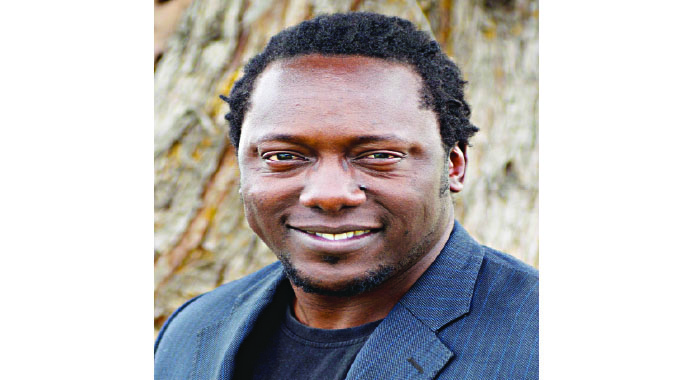Urgent need for return of sport at Government schools

Simba Jemwa, Sports Correspondent
ZIMBABWE is faced with an urgent need to revive physical education at school level in order to replenish the country’s depleted reserves of top-class athletes across all sporting codes.
But perhaps more telling is the huge gulf between Government schools and private schools that fall under the Conference of Heads of Independent Schools in Zimbabwe (CHISZ) and the National Association of Secondary Heads (Nash) along with its counterpart, the National Association of Primary Heads (Naph), respectively.
And this situation has led to what many of these CHISZ schools now tend to do; deny national teams of star players regularly and with impunity.
After all, it’s their schools that are playing sports so why must they be burdened?
To make matters worse, two years of Covid-induced lockdowns means learners at Government schools have not had any athletic endeavours since 2019, and yet their private school counterparts have been active for as long as their schools have been open.

Prince Edward
In the old days, there was very little to distinguish between Government and private schools. Government secondary schools like Plumtree, Gifford, Milton, Northlea, Prince Edward, Founders, Hamilton, Allan Wilson, Churchill and many others did not only compete with private schools, but also beat them many times too.
Even at primary school level, Government schools like Robert Tredgold, Baines, Hillside and Moray stood their own against Whitestone or REPS, and all of them fed high schools from across the economic divide.
These schools produced iconic athletes like Victor and Henry Olonga, Brendon Dawson, Zivanai Dzinomurumbi, Jeff Tigere, Emmanuel Mukandi, Juma Phiri, Mpumelelo Mbangwa and Honeywell Nguruve, among others, who held their own in their chosen sporting codes when faced with their peers from schools like Falcon, Peterhouse, Christian Brothers College (CBC), St Johns and St George’s.

Christian Brothers College (CBC)
Sports like tennis, squash, hockey, swimming, rugby, football, athletics and cricket were heavily active in Government and private schools alike.
There were occasions when Milton would be stronger than Falcon or Plumtree, the same against CBC.
These schools would combine to produce the best national sides possible within the school going age groups.
They made Zimbabwe a sporting powerhouse just waiting to explode onto the global stage.
But as we progressed through the years, this has not only failed to materialise, but it seems we have regressed.
All the sports fields that were a hive of activity in all schools whether Government-run or otherwise are now silent white elephants, with little or no sport being played.
Today all we get are football players at Government-run primary and secondary schools, giving the impression that only CHISZ schools have both the ability and the wherewithal to compete in certain sports.
So big has the problem become that even with football, Zimbabwe is no longer a force to reckon with at junior level.
Such are effects of the dearth of sport in Zimbabwe schools.
It is disheartening to see the country having only a handful of athletes capable of sustaining a challenge in international competitions, a situation brought about by the continued neglect of physical education in schools.
Everyone appreciates that budgets are tight in school districts across Zimbabwe, and when money becomes scarce, tough decisions have to be made.
For some schools, the cuts may come in the athletics departments, with a number of districts significantly decreasing the athletic programmes available to learners or do away with sports altogether.
Under normal circumstances though, this is not a choice schools must make.
Schools and school inspectors must develop strategies for handling the challenge of keeping sports and other extracurricular activities in schools, despite their inability to pay for them.
It is sad to note that as schools grapple with major cuts to their budgets, one of the first items that appear to be headed for the chopping block is athletic programmes.
An urgent intervention is necessary for Zimbabwe to remain relevant on the international sporting arena.
While Zimbabwe historically had better than average athletes, especially when they hit secondary school, now it’s a pale shadow of those glory days when sporting events at schools used to capture the imagination of parent and child alike, when fans used to attend schools’ sporting events.
Today it is easy to point fingers at coaches or even the athletes themselves for the nation’s failure on the sporting stage, but critically there has been very little in terms of grassroots development.
Today for a child to play sport of their choice, they would need to go to private schools because of limitations at public schools.
The solution is simple and clear as day; sport or physical education must be brought back to schools and made compulsory, not when resources become available, but immediately.
Let Zimbabwe improve school sports and make it competitive again.
“Sport in my time at school was a big thing.
Back then school sports were very competitive.
When there was an event, the whole community would come to watch you.
You felt the pressure to perform your best at all times and this helped greatly in shaping our careers,” reminisced Tigere, an ex-Founders learner, who played rugby and basketball for the national team at the same time.
“The teachers were very involved and helpful.
They did a great job.
They made time after school to help you with your training.
We don’t have the same commitment any more.
Most aspiring athletes have to pay coaches now, but how many can afford coaches? We need to train teachers who will focus on physical education and sport at schools,” Tigere said.
While lamenting the inadequate talent coming through the ranks, Tigere expressed hope for young athletes who, if capacitated and introduced to sport at an early age, have the natural talent to compete with the world’s best.
“A significant contribution to the development of sports and education in Zimbabwe is not just about money being available.
What we need is for schools, especially Government schools that have more students, to begin to bring back sport to our children,” a retired teacher who asked not to be named said.
“Sport isn’t just about technical performances or winning and losing, but today it can also be used to positively transform communities by using sport as a tool to promote HIV/Aids education and healthy lifestyles.

“Back then, we used to emphasise the importance of balancing education with sports.
I am therefore proud that in those days, there was a valued investment in young men and women, who are not only talented on the sports field, but who also resolved to pursue a sound academic career.
Some of those athletes went on to pursue studies in engineering, accounting and science, which is very promising for a growing nation,” said the former teacher, who was a hockey coach during his teaching days.
The reality, however, is that sport in Zimbabwean schools has waned drastically, whereas in the 1980s through to the 1990s, sport was an integral part of a child’s general development.
It has now lost its appeal such that a country that once boasted Olympic gold medal winners and Davis Cup greats and key Test cricket victories without even leaving our shores, no longer has home-based athletes of note.
The fall is further compounded by the little or no efforts by stakeholders to arrest the situation.
The fall of sport within the schools’ system has been happening slowly but gradually.
While all schools have sports fields, very few of them are making full use of them.
So today, if a child wants to play and excel in sport, parents might have to mortgage their lives just so they can send them to a private school where sport is still very much a strong part of a child’s development.
— @RealSimbaJemwa











Comments